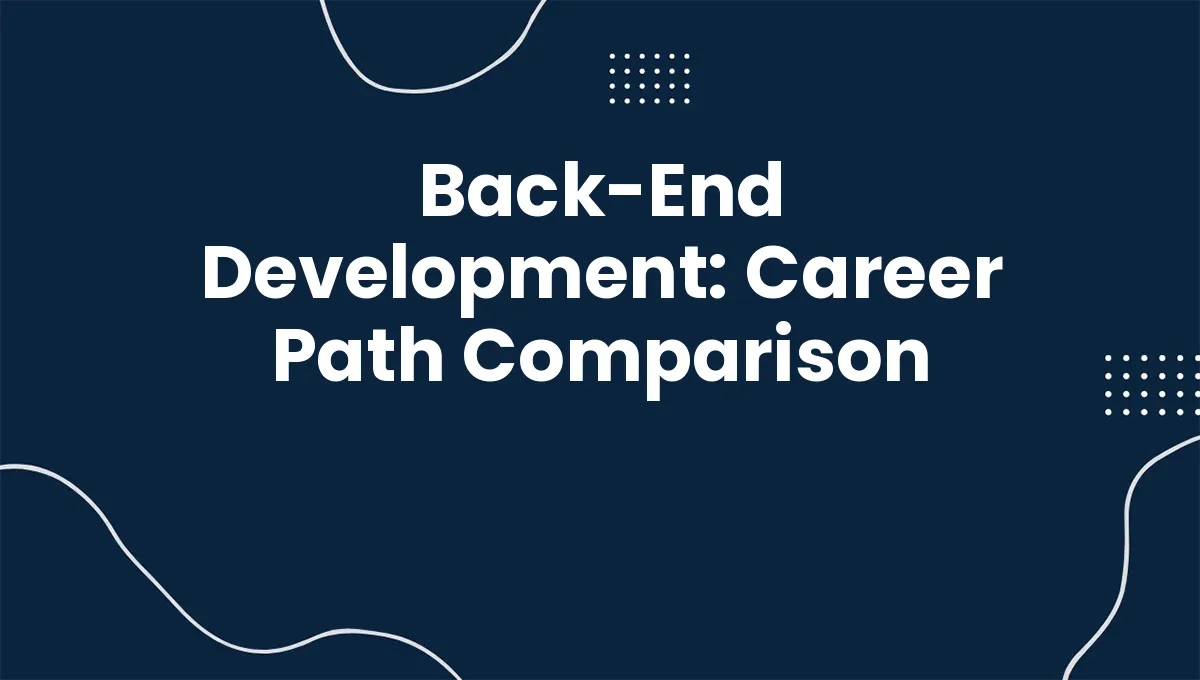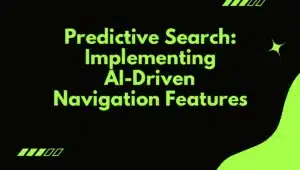Back-End Growth: Career Path Comparison for Aspiring tech Professionals
When it comes to building robust digital solutions, back-end development often plays a pivotal yet underappreciated role. The back-end is the engine that powers the entire web experience; it’s what connects the database, server, and application, ensuring everything runs smoothly and securely. For business owners, startups, and marketing teams looking to elevate their digital presence, understanding back-end development can be a game changer-not just for your web experience but for your marketing strategy as well. In this post, we’ll explore the various career paths within back-end development and how they can create opportunities for your brand’s growth.
Why Back-End Development Matters
Before diving into career paths, let’s talk about why back-end development should matter to you as a business leader. Your website is often the first point of contact for customers. A well-structured, responsive back-end leads to faster load times, better user experience, and ultimately higher conversion rates. Think about sites like Amazon or Netflix; the seamless interactions you enjoy stem from effective back-end development.In a world where every millisecond counts, investing in back-end expertise is not just advisable; it’s necessary.
Common Back-End Development Careers
1. Back-end Developer
The most straightforward path in back-end development, this role primarily focuses on server-side application logic and integration, managing data interchange between the server and the users. It’s about writing APIs, connecting web applications to third-party services, and ensuring that databases are optimized.
Skills Needed:
- Proficiency in languages like Python, Ruby, Java, or PHP.
- Understanding of database management systems (MySQL, PostgreSQL).
- Familiarity with server architecture and cloud services.
Real-World Impact: A fruitful example comes from Airbnb. Through streamlined back-end architecture and databases, they achieve rapid scaling, ensuring hundreds of thousands of bookings daily. If your website suffers from slow loading times or frequent crashes, you might need to lean on the expertise of a competent back-end developer.
2. DevOps Engineer
If you’re looking for a role that encompasses both development and operations, then the DevOps sphere is where you’ll want to pivot. DevOps engineers focus on collaboration, integration, and communication across development, operations, and other support teams-all learning to automate software deployment, enhance performance, and ensure reliability.
Skills Needed:
- Scripting and configuration management (Python,Bash).
- Familiarity with CI/CD pipelines, tools like Jenkins, Docker, and Kubernetes.
- knowledge of cloud services (AWS, Azure, Google Cloud).
Real-World Impact: Look at Spotify, whose strong DevOps culture allows them to deploy new features regularly. This agility not only keeps user engagement high but also ensures quick troubleshooting and updates. For brands that require consistent innovation, a well-versed DevOps engineer can propel you toward rapid growth and sustained relevance.
3. database Administrator (DBA)
A DBA is the guardian of data. This role involves managing and structuring a company’s data resources-an essential function for organizations that rely on data-driven decisions. Companies cannot afford to go blind without effective database management.
Skills Needed:
- Mastery of SQL and NoSQL databases.
- Expertise in backup and recovery, performance tuning, and data migration.
- Understanding of the implications of data privacy regulations (GDPR, CCPA).
Real-World Impact: Consider Facebook, which handles colossal amounts of user data daily. The integrity and performance of their database systems are crucial for real-time data processing and user experience. For startups, having a competent DBA can help harness data effectively, paving the way for actionable insights and strategic decision-making.
4. Back-End Software Architect
This is a senior role tailored for those who have transitioned from development and want to oversee a team and the entire application architecture.Architects design scalable, efficient systems and are responsible for the overall strategy behind back-end development.
Skills Needed:
- In-depth understanding of various programming paradigms and software design.
- Leadership abilities to guide tech teams and collaborate with stakeholders.
- Ability to make high-level decisions about technologies and frameworks.
Real-World Impact: Companies like Google depend on architect-level talent to ensure their systems can handle millions of users while remaining efficient. For businesses, having a back-end software architect can align your technology with overarching business goals, ensuring that your digital assets can scale with growth.
Transitioning into Back-End Development
Whether you’re a marketer looking to upskill or a startup founder venturing into tech, transitioning into back-end development requires adopting a growth mindset.Here’s how:
- Embrace Continuous Learning: The tech field is always evolving. Online courses, coding bootcamps, and communities can expedite your learning.
- Start with Projects: Build your own websites or applications. Platforms like GitHub can showcase your work.
- Network Relentlessly: Attend meetups, webinars, or coding contests. Meeting mentors and peers can open doors you didn’t even know existed.
In Summary
Back-end development is an essential facet of modern digital strategy that offers various lucrative career paths. For business owners and marketers, understanding this realm can lead to better decisions when hiring or working with technical teams. by leveraging back-end developers, DevOps engineers, DBAs, and architects, you’re not just hiring tech staff; you’re investing in your brand’s endurance and growth.
At Cham Agency,we believe that learning about back-end development is pivotal not just for those who are directly involved in creation but also for those who wish to understand how it impacts the broader marketing strategy. Embrace back-end development to ensure that your online experiences are not only dynamic but also robust, efficient, and ready for the future.
Bookmark this post and return whenever you need guidance on navigating the intricate world of back-end development and its potential to transform your business. Remember, in digital marketing and web development, knowledge is power-and we’re here to empower you.





